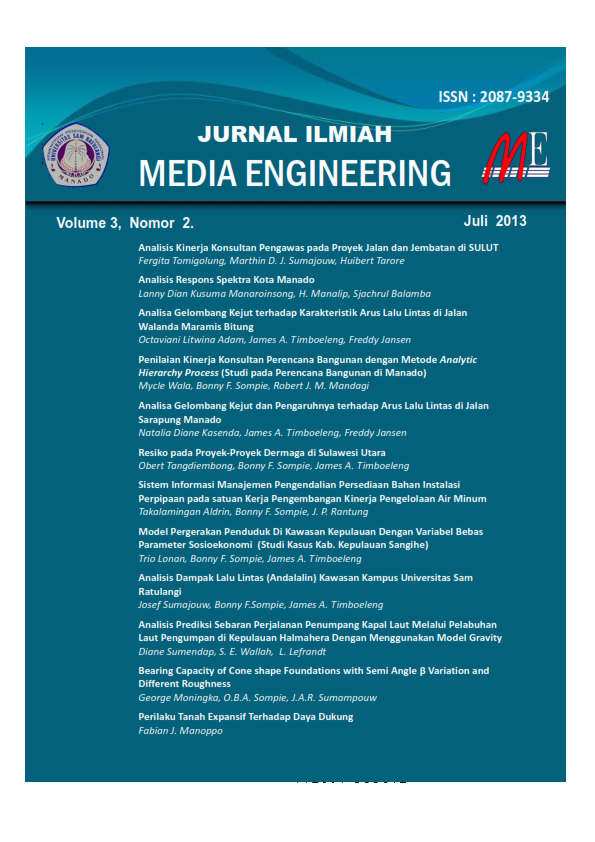BEARING CAPACITY OF CONE SHAPED FOUNDATIONS WITH SEMI ANGLE β VARIATION AND DIFFERENT ROUGHNESS
Abstract
A properly designed foundation throughout the soil without overstressing the soil. Overstressing the soil can result in either excessive settlement or shear failure of the soil, both on which cause damage to the structure; thus, geotechnical and structural engineers who design foundations must evaluate the bearing capacity of soils. Depending on the structure and soil encountered, various types of foundation are used. The problem of bearing capacity of cone shaped foundation with semi angle β variation; 15°, 30°, 45°, 60°, 90° and different roughness; perfectly smooth and perfectly rough, in homogeneous soil and subjected to axial load, is analyzed on the basis of plastic theory. The soil is considered as a perfectly rigid plastic material obeying the MOHR-COULOMB failure criterion. An experimental investigation was made to obtain penetration resistance for estimating the ultimate bearing capacity of cone foundation with various semi angle β and different roughness in sands (c = 0) and clays (ɸ = 0). The Mangatasik Dry Sand and Wenwin Soft Clay were used in this tests. The experimental values were found to agree well with theoretical bearing capacity of cone shaped foundations.Keywords : bearing capacity, cone shaped foundation, semi angle β, roughness, sand, clay.
Downloads
Published
2013-07-15
Issue
Section
Articles
License
Copyright (c) 2013 George Moningka, Oktovian B. A. Sompie, J. A. R. Sumampouw

This work is licensed under a Creative Commons Attribution-ShareAlike 4.0 International License.
- I declare that this paper ... (title of paper) ... is original and has not been published previously nor under consideration to be published elsewhere and that any necessary permission to quote from another source has been obtained.
- With the publication, I transfer the copyright to The Jurnal Ilmiah Media Engineering (PTSU-OJS). This copyright transfer shall cover the exclusive right to reproduce and distribute the article, including reprint, photographic reproduction of similar nature and translation. It shall also include the right to adapt the article for use in conjunction with computer system and programs including reproduction or publication in machine-readable form and incorporation in retrieval systems.
Author (also on behalf of any co-authors):
Signed
____________________Â
Name :
Date :


